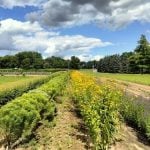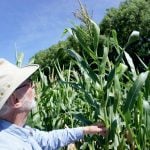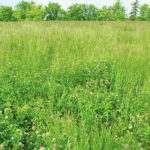
Expanding strawberry varieties suitable for eastern Canada
Federal breeding programs considering agronomic and production system characteristics, as well as consumer preferences

Carolinian Canada wants to hear from farmers on native seed funding
The organization is trying to establish native seed orchards, and wants farmer participation

Farmer-friendly approach could help Species at Risk
Conservationists argue increased farmer participation critical for measuring at-risk

45 years of breeding better silage
Independent corn breeder Francis Glenn reflects on corn silage genetics, industry consolidation, and opportunity

Essex Conservation Authority tile program proving popular
Efforts being made to reduce nutrient loading, sedimentation with installation of tile mains

Why tile quality matters
Tile manufacturers pushing for product certification standards

Improving agriculture’s economic and environmental sustainability
Policy fellows highlight need for more targeted risk management programs, land assessment, and vegetable sector soil support

Supporting farmers improves agriculture’s environmental impact
The opportunity for regulatory, outreach, and conservation policy change.

Is it possible to expand grain shipping on the Great Lakes?
Logistical efficiency will be key to maximizing capacity

Farming on the floodplain
How Latvian cattle farmers improve biodiversity with traditional grazing system

